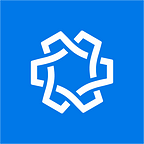The Mission: To Empower Clean Energy
Rocky Mountain Institute (RMI) is a nonprofit working to transform global energy use to tackle climate change. They strive to create this change in several ways, whether through driving the use of clean energy in emerging economies, or reducing methane emissions from the oil and gas industries.
The Problem, and How We’re Helping
Currently, one of RMI’s initiatives is to make buildings cleaner and more energy-efficient, whether they are homes, offices or schools. In order to achieve this, RMI needs to get information from the owners of these buildings so that they can provide them with solutions on how they can optimize their energy usage.
The problem is that RMI currently hires several contractors to oversee this process, involving large amounts of calling individual building owners and collecting the data manually. The situation gets worse when most of these building owners have to call several other people for this data because they don’t have access to it themselves.
Blueprint’s development team, headed by Helen Che in the Fall and Ethan Lee this Spring, is working to fix that by building a dynamic questionnaire to collect that information. In this web application, questions can be delegated and sent to different people, and all the answers get collected by RMI.
“Ultimately, our goal is to turn their complex spreadsheets into beautiful, simple questionnaires.”
Progress Towards Deployment
Instead of just recreating Google Forms, we’re envisioning the final version of the app to include differentiating features such as:
- enabling multiple users to complete the form collaboratively, as oftentimes one single person won’t be able to answer the large list of questions that RMI needs answered
- varying information visibility based on user permissions, such that users will only get to see the specific questions they were delegated, as some data might be confidential
- allowing RMI to create dependent questions, and creating a dynamic question-answering experience since many questions will depend on previous responses
Technical Challenges
A central challenge is implementing the schema of the database. Since many of the questions that RMI needs to ask the building owners will vary depending on the situation, we have to enable our users to create their own custom questions. Not only does our database have to be able to store and organize this information, but we also have to add the functionality of exporting this data onto a CSV file.
“Another large problem our team faces is to design in consideration of how building data gets collected at every level,” Ethan explains.
“Good design for this platform means more than just good form design. It means creating effective tools for RMI to optimize question formats, inputs, and helper text for clarity. It means giving people that are filling out the form an unambiguous way of sending questions they don’t have answers for to other people. It means being clear in our onboarding process, from the very first email, why they are answering these questions in the first place.”
Next Steps and Final Thoughts
“Unlike many of the projects I have worked on at Blueprint, for this project we have two clients we have to keep in mind — both RMI and the portfolio property owners”, says Helen. “If we manage to help the interaction between RMI and just one property owner, that could enable over 100 buildings to optimize their energy usage, so this project has the potential to have a huge impact.”
The main challenge for our team is user engagement. Clients won’t be encouraged to fill in data if they feel that the process is tedious, and RMI won’t be able to make good use of the data if it is unorganized in the database. It’s up to us to make sure that we are ultimately creating a solution that is as convenient to use as possible, for both parties.
To learn more about Blueprint and read more about our projects, follow us on Facebook and sign up for our community newsletter!
All of Blueprint’s work is open-source because we believe in building technology that makes us more open and connected.
